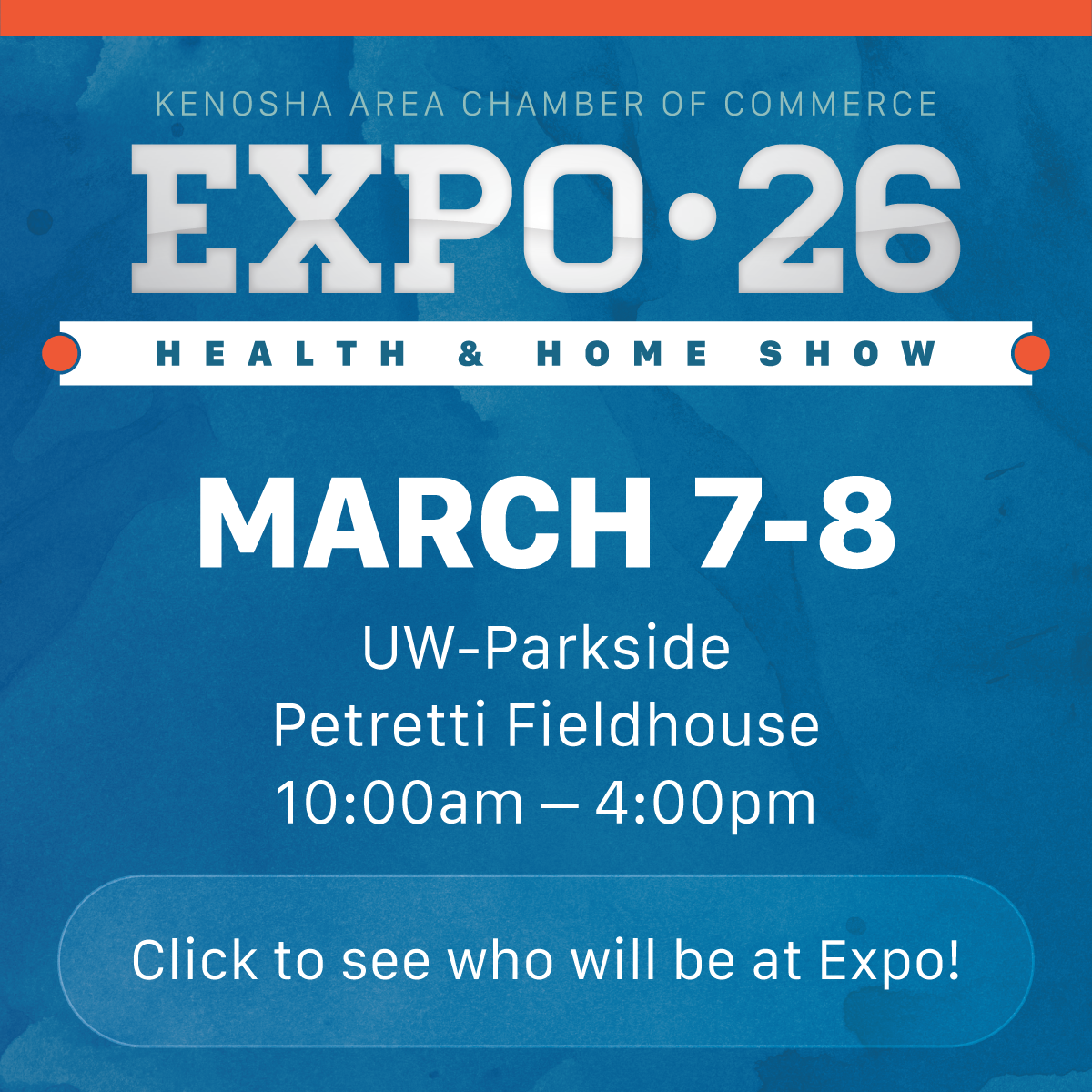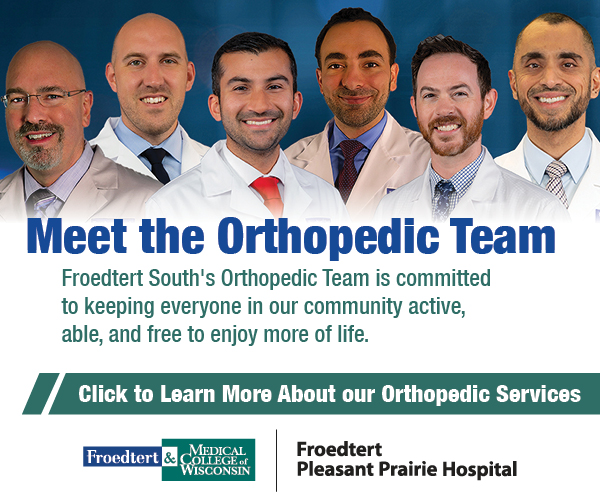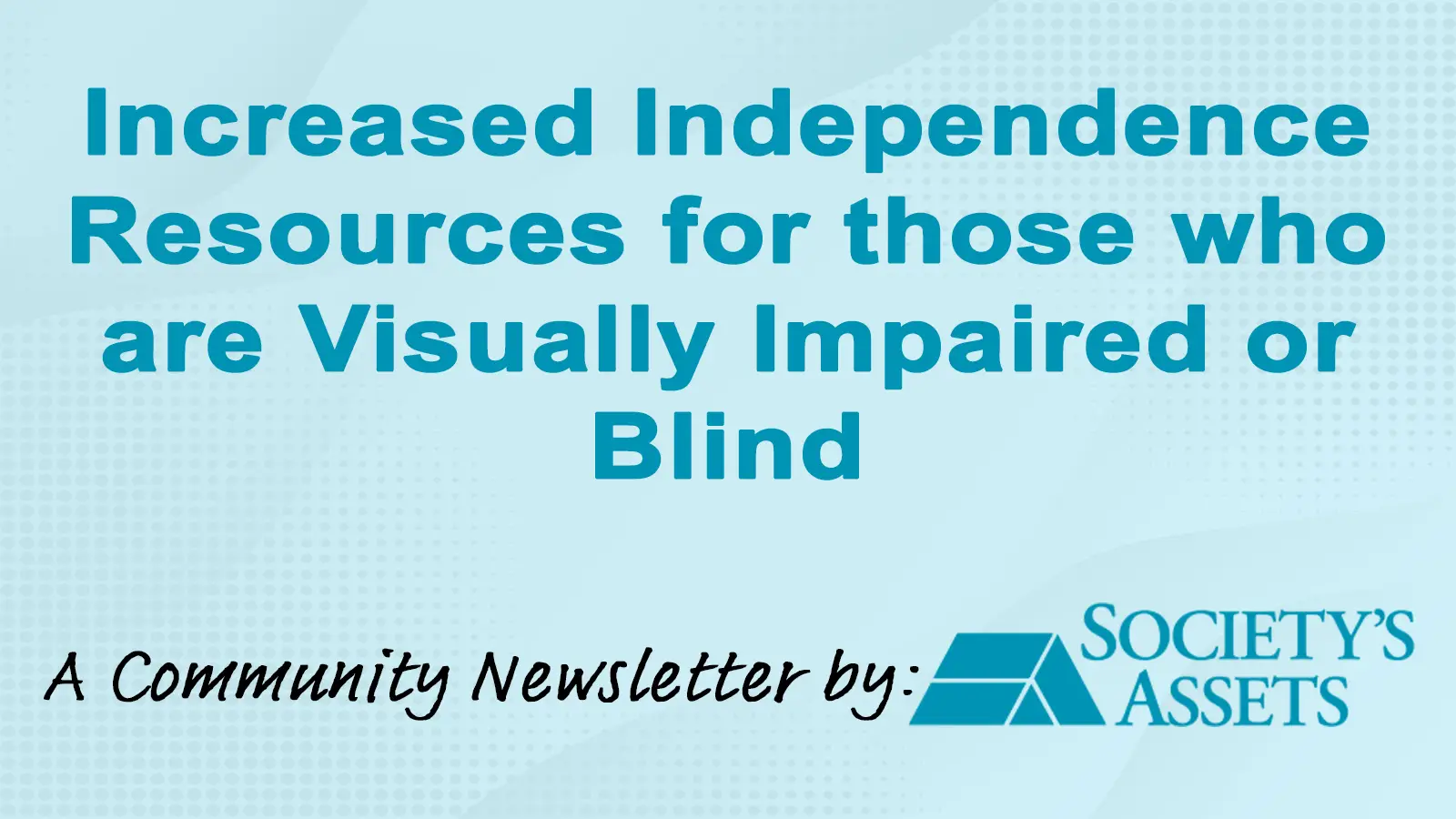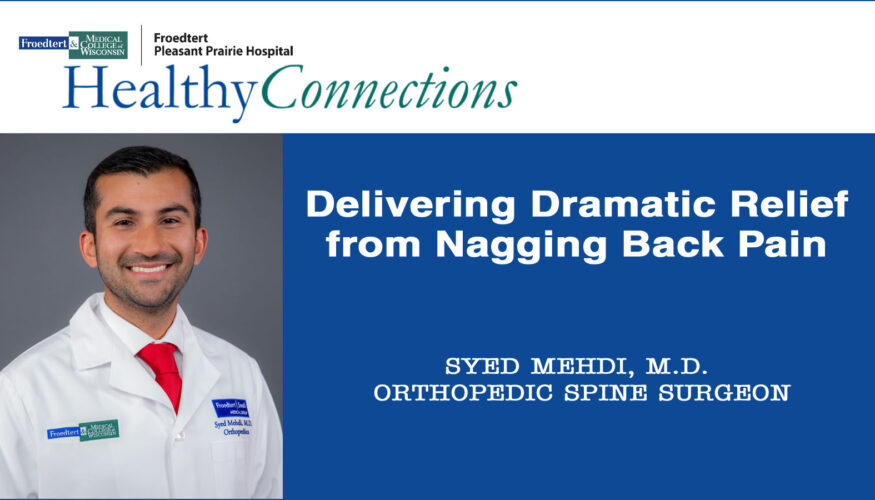Vision loss affects every aspect of one’s life. A medical professional cannot necessarily provide all the individual support his or her patients will need. Friends and family members feel unable to provide the proper support needed. That’s where a peer support group could be invaluable, as well as the services provided by Society’s Assets.
RevitalEyes is a peer support group for people who want to learn more about life with vision loss. The group is made up of people also living with vision loss who can share their own experiences. Members of this group represent a wide range of vision loss, from those who are totally blind to those in the early stages.
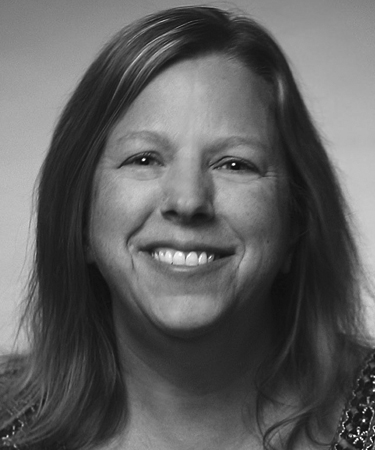
Tami Frentzel, Independent Living Coordinator at Society’s Assets, was diagnosed at age 15 with Retinitis Pigmentosa and was considered legally blind by the age of 21. She started RevitalEyes nearly ten years ago in response to numerous requests for a group offering support to people with vision loss. “It’s essential to support a newly diagnosed person and their family members. The information and support they receive could make it easier to find the strength and courage to live comfortably with a vision loss, like I did,” says Tami Frentzel.
RevitalEyes meets once a month, on the second Thursday of every month, October 9, from 1:30 – 3:00 pm in the St. Catherine’s Commons Community Room, located at 3224 7th Avenue, in Kenosha.
Consider visiting the group if you or your loved one is living with vision loss. Contact Tami in advance if you have any questions at 262-619-3612.
****
White Cane Awareness Day is Wednesday, October 15. It’s time for me to remind drivers about the White Cane Traffic Law, which has been enforced since 1947.
“An operator of a vehicle shall stop the vehicle before approaching closer than 10 feet to a pedestrian who is carrying a cane or walking stick which is white in color or white trimmed with red and which is held in an extended or raised position, or who is using a service animal. The driver must take all necessary precautions to avoid accidents or injuries to pedestrians. The fact that the pedestrian may be violating any applicable pedestrian laws does not relieve the operator of a vehicle of the duties imposed.
If you feel you need a white cane or other ideas to live with vision loss, reach out to Society’s Assets. They are a resource for people with disabilities, including home/vehicle modifications, advocacy, a loan closet with assistive equipment, independent living skills training, peer support, benefits counseling, and transitions to life after high school or returning home from a nursing home. Contact Society’s Assets at 1-800-378-9128.
About Society’s Assets

Society’s Assets, a Center for Independent Living (CIL), is a nonprofit, nonresidential organization dedicated to empowering individuals with disabilities to live independently and fully participate in their communities. Established in 1974, Society’s Assets serves the counties of Jefferson, Kenosha, Racine, Rock, and Walworth, reaching over 3,000 people last year alone. Volunteers, community advocates, and staff—many of whom have disabilities themselves—work collaboratively to advance the organization’s mission.
Through a person-centered services model, the organization provides five core Independent Living (IL) services: Information and Referral; Independent Living Skills Training; Individual and Systems Advocacy; Peer Support; and Transitions, which includes support for those leaving institutions or transitioning from high school to adulthood. Additional resources include assistive technology, accessibility assessments, benefits counseling, home care, and representative payee services.
Society’s Assets is funded through a combination of federal, state, and local grants, service fees, and donations. With a mission to ensure the rights of all people with disabilities to live and function independently in the community of their choice, the organization addresses the needs of a diverse audience—individuals of all ages with visible and nonvisible disabilities—helping to foster autonomy and build more inclusive communities.

